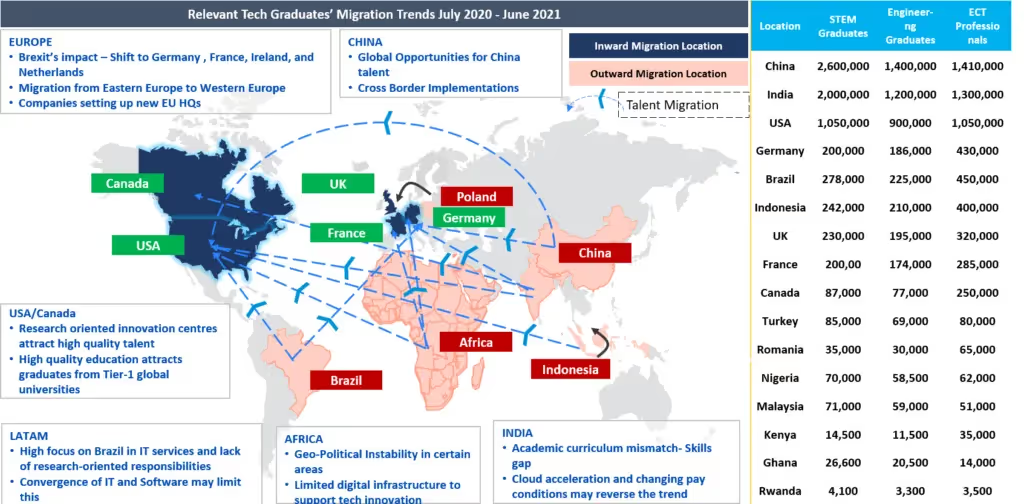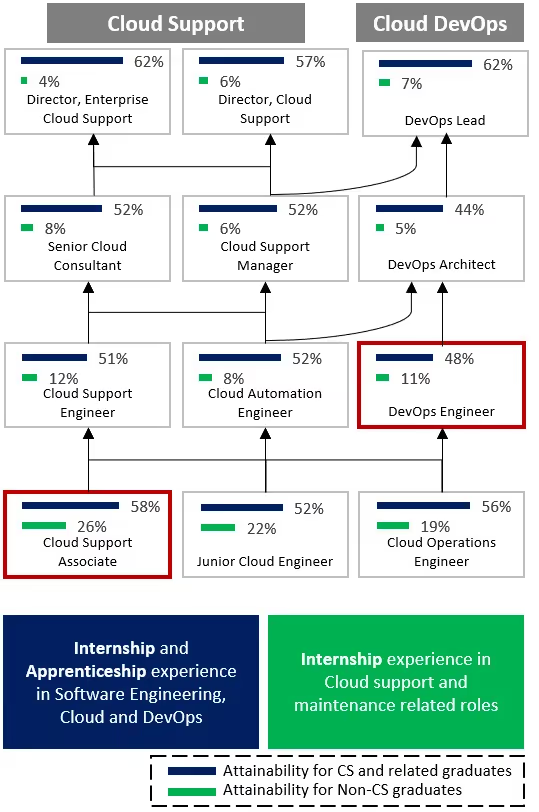Re-evaluating Job Descriptions to Attract Early-Career Talent
The 2021 Nobel Prize for Economics went for David Card, Joshua D. Angrist, and Guido W. Imbens for their methodological contributions to the analysis of causal relationships. This years Laureates have provided us with new insights about the labor market and shown what conclusions about cause and effect can be drawn from natural experiments. Their approach has spread to other fields and revolutionized empirical research.
Natural Experiments vary from Clinical Experiments because the researcher may not control the research conditions perfectly. As a result, Natural Experiments researchers have to look at close or near close ecosystems when selecting their experiments. Using natural experiments, David Card has analyzed the labor market effects of minimum wages, immigration, and education. His studies from the early 1990s challenged conventional wisdom, leading to new analyses and additional insights. The results showed, among other things, that increasing the minimum wage does not necessarily lead to fewer jobs. (The Sveriges Riksbank Prize in Economic Sciences in Memory of Alfred Nobel 2021. NobelPrize.org. Nobel Prize Outreach AB 2021. Sun. 7 Nov 2021)
Extending Natural Experiments to Hiring and Recruitment can be very beneficial.
It isnt easy to cover the benefits of such experiments in one email. But we will attempt to do so. Here is a more accurate definition of a Natural Experiment
A natural experiment is an empirical or observational study in which the control and experimental variables of interest are not artificially manipulated by researchers but instead are allowed to be influenced by nature or factors outside of the researchers control. Unlike traditional randomized experiments, natural experiments are not controlled by researchers but rather observed and analyzed
There are many recruitment problems you can apply this concept and understand the impact
- What are the successful conversations that led to the acceptance of candidates from big tech?
- What are the successful conversations to counter the higher paying counter offers?
(In the world of data) there are only Patterns, Patterns on top of Patterns and patterns that affect other patterns, patterns within patterns Chuck Palahniuk (American Novelist)
We are applying Natural Experiments in another aspect.
Do companies really need the level of experience they are asking for in the job description?
Recently I came across a JD from a health insurance company asking for 3 to 6 years of relevant experience for a Cloud Support Engineer role. When we investigated the job requirements, most skills will be covered by six-month training and certification programs. The role is also somewhat junior. Such experience inflation exists for various reasons. Companies are buffering up for some unanticipated and unexpected variations that the job may provide. And also, by asking for such experiences, they are modeling for having the ability to work in an enterprise. So if someone has withstood the test of time in that role, they get additional comfort that the resource hired will meet all their requirements. (Not against experience, as that is often valuable in very many roles). By operating this way, you are missing out on a massive pool of early-career talent. Not only the university talent but people with say 1 or 2 years of experience
As a Natural Experiment, we looked at the work done by Ali Tamaseb, who studied the kind of people that Startups hired between 2008 to 2018. (Over 20,000 Startups). On interview caught my attention. The interview with Nat Turner and Zach Weinberg, who founded Flatiron Health was fascinating. Neither of the founders had an Oncology background but built a company that provides real-world oncology data company. They asked one straightforward question (less than 4% of the cancer patients go through clinical studies what is happening with the other 96% of the patients?). That single question led to this billion-dollar company. When Nat Turner asked how he hired the first 100 people, the following aspects were highlighted:
- Vertical Thinking (being selective and Analytical
- Sequential Thinking (ability to process in an orderly way)
- Problem Solvin
- Demonstrated ability to have built something (even a simple website)
- Empathy (Ability to recognize the problem from other people perspectives)
- Lived in experience (choices given and the knowledge gained from that)
- Conflict Resolution
We do not see many job descriptions with these skills. As a result, we are publishing a Draup Soft Skills library very soon. In the world of technology, hard skills are easy to learn. Much before DoorDash became popular, EatNow had revolutionized online food ordering. But it failed. Why?
EatNow had a faulty business model in not collecting money from consumers ordering the food. It collected money from restaurants. Simply put, EatNow lacked experience. But the app itself was in many ways superior to DoorDash at that time. This aspect is where enterprises should see how to use early career talent in a big way
Let us look at the early career talent availability across the globe

The talent available is in plenty. In the US alone, 8.2 million people were enrolled in 2-year community colleges between 2018 and 2019. Over 65% of the graduating candidates in India are located outside the metro city areas.
How are we going to make this relevant and applicable? One trick lies in understanding where early career talent will be helpful. For example, creating roles in Cloud Support and Cloud DevOps will be very useful for any enterprise in the next two years. Cloud Support Associate, Junior Cloud Engineer, Cloud Operations Engineer are versatile entry-level roles that can be created leveraging entry-level pool. Such mapping by the function will be beneficial











.svg)





















.svg)





.svg)
